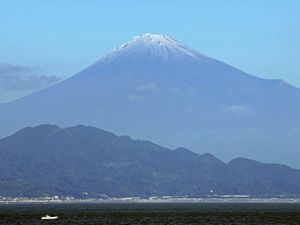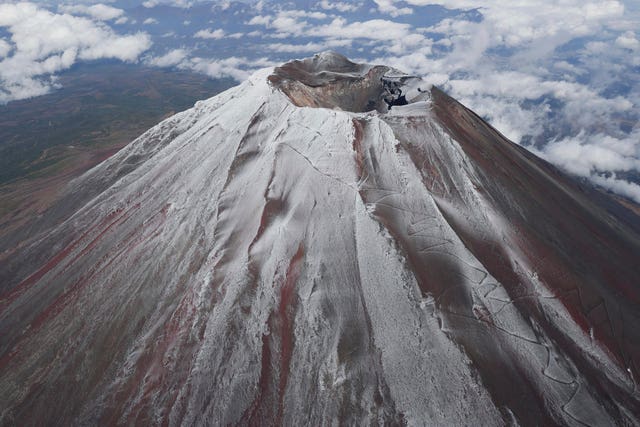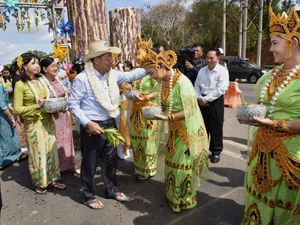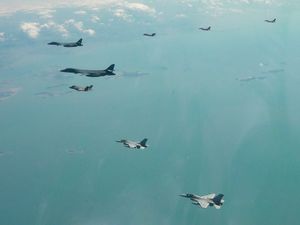Mount Fuji gets its trademark snowcap after the longest delay in 130 years
The lack of snow on Mount Fuji on Tuesday broke the previous record set on October 26, 2016, meteorological officials said.

Mount Fuji in Japan finally got its trademark snowcap early on Wednesday, more than a month after it normally would and after setting a record for the most-delayed snowfall in 130 years.
The first snowfall on Mount Fuji, a Unesco World Heritage site, could be seen from the south-western side of the mountain, according to the Shizuoka branch of the Japan Meteorological Agency.
But the JMA’s Kofu Local Meteorological Office, which is on the other side of the mountain and has been in charge of making the announcement since 1984, still could not see the snow because of cloudy weather – meaning it is not official yet.
The lack of snow on Mount Fuji on Tuesday broke the previous record set on October 26, 2016, meteorological officials said.

Usually, the 12,300ft mountain has sprinkles of snow falling on its summit from October 2, about a month after the summer hiking season there ends. Last year, snow fell on the mountain on October 5, according to the JMA.
Snowless Mount Fuji has captured attention on social media. People posted photos showing the bare mountain, some expressing surprise and others concerned about climate change.
The JMA’s Kofu office has cited October’s surprisingly summery weather as the reason. The temperature earlier this year has been higher across Japan, including Mount Fuji.
The average October temperature is minus 2C at the summit, but this year it was 1.6C, a record high since 1932.
Japan this year also had an unusually hot summer and warm autumn.
A symbol of Japan, the mountain called “Fujisan” used to be a place of pilgrimage.
The mountain with its snowy top and near symmetrical slopes has been the subject of numerous forms of art, including Japanese ukiyoe artist Katsushika Hokusai’s Thirty-six Views of Mount Fuji.
Today it attracts hikers who climb to the summit to see the sunrise. But discarded rubbish and overcrowding have triggered concern and calls for environmental protection and measures to control over-tourism.





